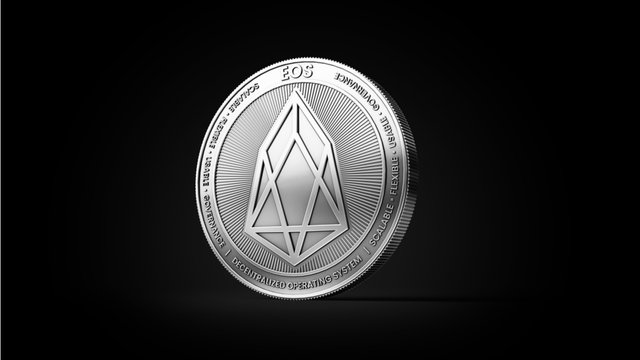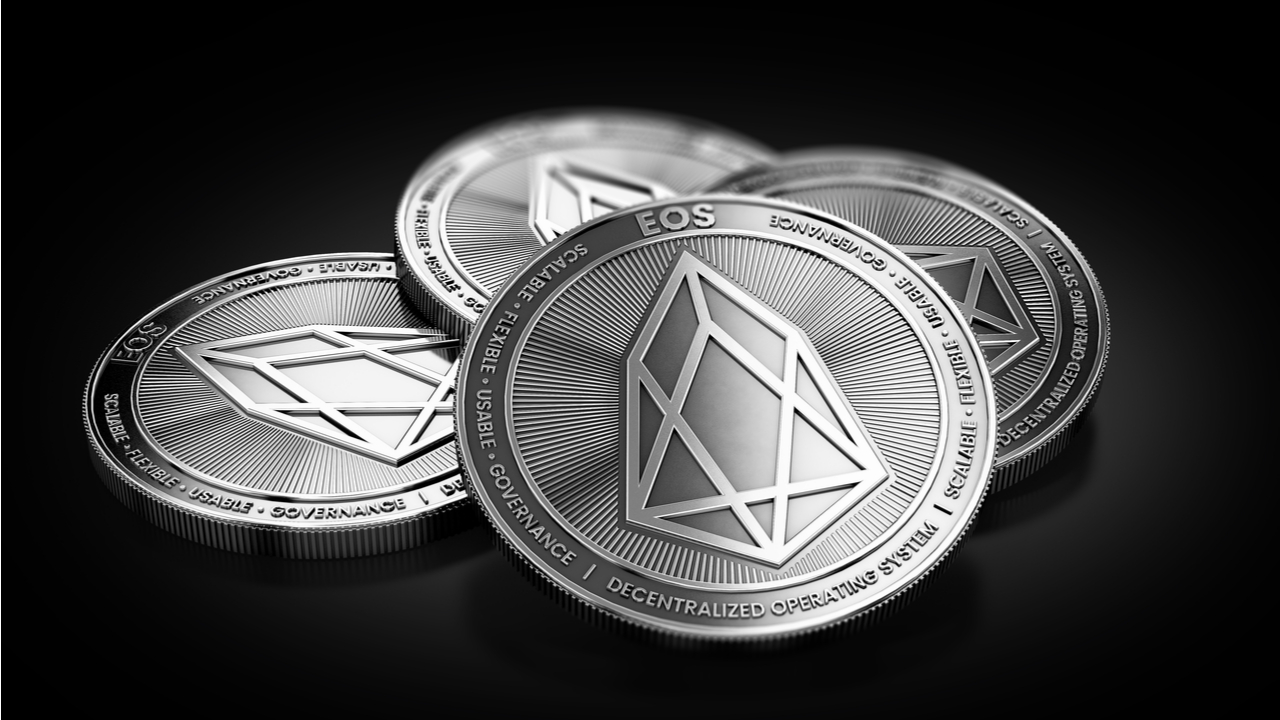The Blockchain Handbook - Chapter 10: EOS (EOS)
In short, EOS is a blockchain technology, similar to Ethereum, created by Dan Larrimer (the creator of Bitshares and Steem). Unlike similar blockchains that simply support dApps, however, EOS was designed with developers of such programs specifically in mind. Alternatively called the Endless Online Scaling, Ethereum On Steroids, and a host of other creative names, the creators of this platform maintain that there's no standard definition for the acronym:
"We believe that EOS means different things to different people. We have received numerous amazing interpretations of what EOS stands for or what it should stand for so we have decided not to formally define it ourselves."
Though enthusiasts might be able to call it what they will, one thing that isn't up for debate is the spark of interest the blockchain has generated over recent months, achieving a market cap of about $6,590,840,301, or 590,325 BTC. Created with the promise of becoming the number one contender in the dApp space and lowering the barrier to entry for developers and organizations seeking decentralized, blockchain solutions, EOS currently holds a value of $9.70, with a 24-hour volume of $234,181,000 and a circulating supply of 679,527,618 EOS.
EOS: Competition, Pros, and Cons
The driving force of EOS is all about dApps, as detailed in their technical whitepaper:
"The EOS.IO software introduces a new blockchain architecture designed to enable vertical and horizontal scaling of decentralized applications. This is achieved by creating an operating system-like construct upon which applications can be built."
While EOS isn't the only player in this space, their platform is one, as they put it, that will "scale to millions of transactions per second, eliminate user fees and allow for quick and easy deployment of dApps." The confidence behind their vision is substantial. Though only announced in May of 2017 the June ICO managed to bring in upwards of $185 million, all with the promise of building the most powerful infrastructure to date for dApps.
As such, EOS seeks to combine the best technological features from Bitcoin, Ethereum, and the like, into one platform that is simpler and more ready to scale as the user base grows. Making sure the platform can sustain millions of users is key, as accomplishing their goal of disrupting existing business models through blockchain technology is only achievable, as they see it, through mass adoption. Supporting this goal further is the fact that EOS is free to use, will upgrade easily and have low latency to maximize the user experience.
Part of that upward scaling vision comes from the EOS consensus algorithm, what they call Delegated Proof Of Stake. This system differs from that used by Bitcoin and Ethereum, wherein computers on the network verify the state of the whole blockchain to monitor fraudulence and confirm transactions. The EOS system instead verifies the series of events that have occurred on the blockchain thus far in order to track the state of the network. While it means that the EOS platform might take longer to reconfirm transaction histories if restarted, it can handle more transactions while running, enabling the multitude of transactions and scaling dreams that the company is envisioning.
The DPOS consensus algorithm also makes it unlikely that EOS will experience setbacks on the level of the DAO attack that hampered Ethereum, as faulty blocks can be frozen and taken care of, and won't require every node on their network for maintenance. As laid out in their section on freezing accounts:
"The block producers on all blockchains have the power to select which transactions are included in blocks which gives them the ability to freeze accounts. A blockchain using EOS.IO software formalizes this authority by subjecting the process of freezing an account to a 17/21 vote of active producers."
Further enhancing the attractiveness of the EOS platform are myriad features like their web toolkit for interface development, parallel processing ability, and the focus on EOS being an "operating system" of sorts, as opposed to a decentralized supercomputer like Ethereum positions itself as. It's all "in-the-works," though, so it remains to be seen how the EOS infrastructure will handle itself in practice.
The Uses of EOS
The uses for EOS revolve, again, around dApps. Users will be able to build and implement dApps for varying purposes on the EOS platform, without the need for smart contracts. This smooths dApps transactions for users, and should make for a wider variety of dApp possibilities, such as microblogs and the like. In addition, dApp creators and users on EOS will benefit from built-in database/account management features, which Ethereum dApp developers must do for themselves. As the platform grows, the more far-reaching implications of the technology will likely make themselves apparent.
The Future for EOS
EOS is still in its developing phases, but the detailed software roadmap lays out the creator's plans for the future. With minimal viable testing complete, they'll be moving to security audits in and optimization in 2018, adding language support and issuing bounties for successful attacks against the network. Recently, EOS announced their new Dawn 3.0 code, which, while still in its early alpha phases, will introduce new features like "deferred transactions, staking pools, a new currency contract, and a new emerging token standard." Users can look forward to this for the end of the first quarter of 2018.
Sources:
- https://coinmarketcap.com/currencies/eos/
- https://eos.io/
- https://eos.io/faq.html
- https://medium.com/eosio/dawn-3-0-alpha-announcement-7f8b1bd74364
- https://github.com/EOSIO/Documentation/blob/master/Roadmap.md
- https://github.com/EOSIO/Documentation/blob/master/TechnicalWhitePaper.md
- https://steemit.com/dpos/@dantheman/dpos-consensus-algorithm-this-missing-white-paper
- https://www.weusecoins.com/what-is-eos/
- https://blockgeeks.com/guides/eos-blockchain/
- https://coincentral.com/what-is-eos/
- https://themerkle.com/what-is-eos/
- https://www.quora.com/What-is-EOS-cryptocurrency
- https://www.investinblockchain.com/what-is-eos/
- https://medium.com/chain-cloud-company-blog/is-eos-the-ethereum-killer-ad24277d8c9c
- https://www.coindesk.com/eos-unpacking-the-big-promises-behind-a-possible-blockchain-contender/
- https://www.dailydot.com/debug/what-is-eos-dapps/
- https://www.investitin.com/eos-ico-review-eos-good-investment/


Great post! I Just upvoted your post. I will auto upvote anyone who is following me.
Check https://mykucoin.com for more Cryptocurrency news